Plastic-free supermarkets, the more sustainable option
Plastic-free supermarkets to save the planet
Experts calculate that over eight tonnes of non-biodegradable plastic end up in the seas and oceans every year. In the fight against this enemy, it is vital for the big supermarkets to take a stand, but small plastic-free supermarkets like unPacked in Madrid and YES FUTURE in Barcelona are pioneers in a battle that is being fought with weapons like bulk buying, reusing containers and using cloth shopping bags.
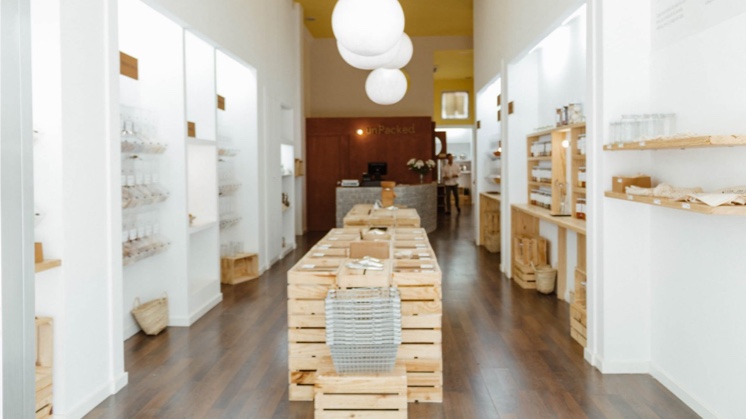
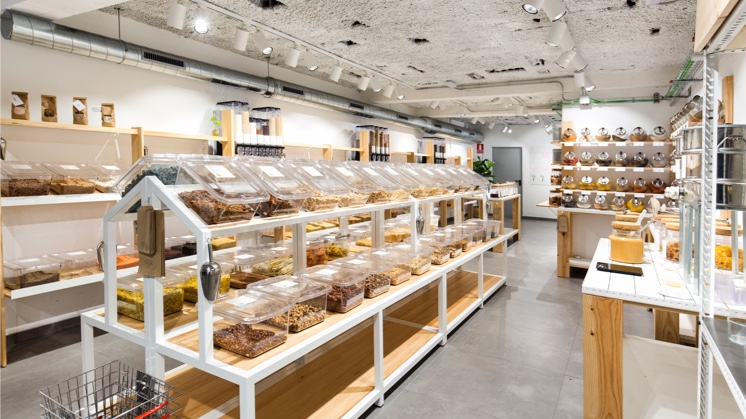
Spain is the number two country, right behind Turkey, in terms of the amount of plastic it dumps into the Mediterranean. The statistics tell it all: each Spaniard uses an average of 144 plastic bags a year, i.e., a total of 6.8 billion. The problem is obvious: the useful life of these bags is very short—we use them for barely 15 minutes—but it takes up to hundreds of years for them to biodegrade, depending on their composition.
And the data are not reassuring: according to the WWF, Spain consumes almost 5 million tonnes of plastic per year but recycles only 28%. The fight against plastic pollution is the great environmental war of our time, and governments and institutions are taking note of this. The European Union has prohibited the use of single-use plastics, such as plates, cutlery and drinking straws, starting in 2021, and a growing number of government initiatives are taking shape along these lines.
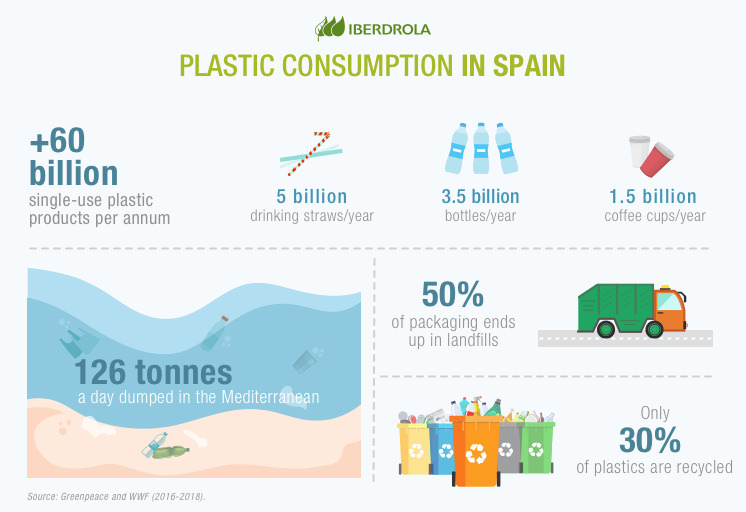
Meanwhile, the battle against plastic is also being waged on the streets. Popular initiatives like Cero Residuos (Zero Waste) and Desnuda la Fruta (Naked Fruit) are demanding that superstores significantly reduce their use of plastic bags and packaging and polystyrene trays. Growing awareness among the public, and among business too: for some time now, plastic-free supermarkets have been becoming more and more common.
The basic premise of this trend is apparently simple: recycling is good, but not generating waste is even better. So, eradicating plastic is essential, both from product displays and the packaging on offer, ranging from cloth bags to options like recycled and recyclable cellophane. Bulk buying, which was normal before the appearance of supermarkets, is back and is here to stay.
A sustainable shopping basket
YES FUTURE, in Barcelona, opened in September 2017 with the challenge of safeguarding the ecological and sustainable nature of its range of products and the packaging they come in. Customers take in their own containers and wrappers and reuse them, preventing any unnecessary waste. Unlike other shops of this type, where dry goods like beans, rice and spices are sold in bulk at YES FUTURE it is possible to “do a full shop, including beverages, liquid condiments, personal hygiene and household cleaning products and sustainable utensils like scouring pads and toothbrushes,” says its founder, Olga Rodríguez.

There is an increasing awareness of the fight against plastic and there has been a noticeable change in just a short time. Both Olga Rodríguez and her partner Alejandro Martínez confirm this. “It is gathering strength. Suppliers that we would not work with two years ago have changed their ways of packaging and are now more respectful of the environment”. This has allowed firms like YES FUTURE to offer a wider range of goods and meet the demands of their customers, which are also growing.
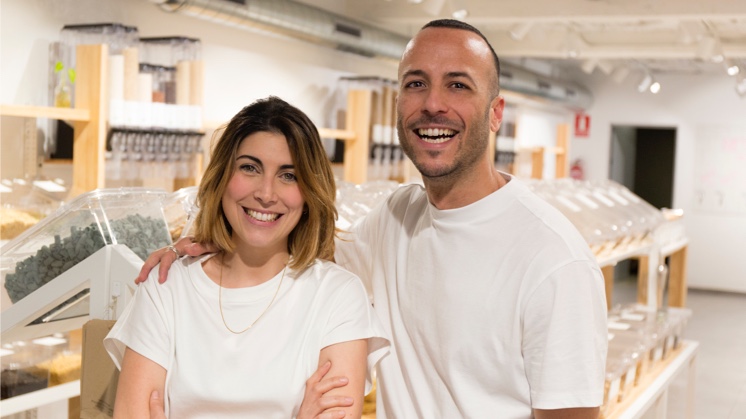
“Young customers are definitely more aware, but more and more people of all ages are coming to us looking for advice on how to reduce their use of plastics and make their shopping sustainable,” explains María Arias, founder of unPacked, the first zero-waste supermarket in Madrid. Wine, olive oil, honey, roasted coffee and even a flour mill are part of the range at unPacked. Since it opened in September 2018, Arias says there has been an obvious “change in the way society thinks about reusing packaging and a commitment to not generating waste. The role of the media is essential in bringing initiatives like Plastic-Free Week to the attention of society".
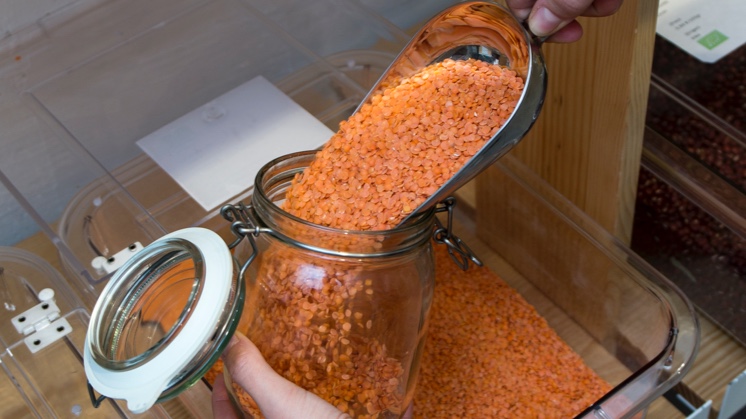
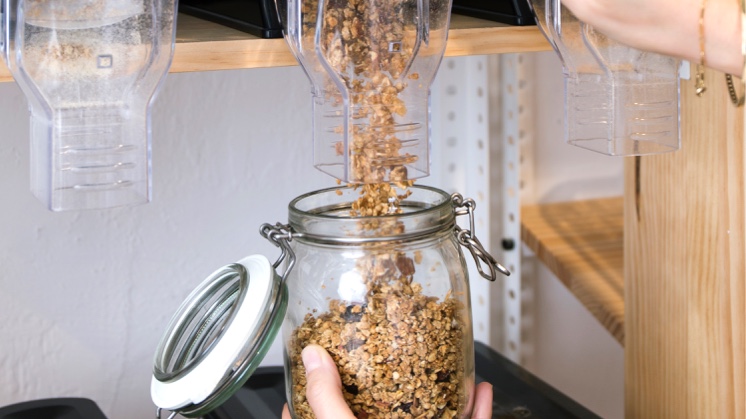
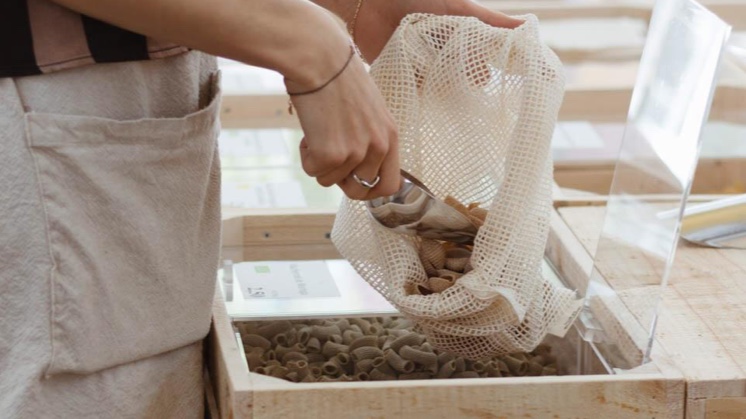
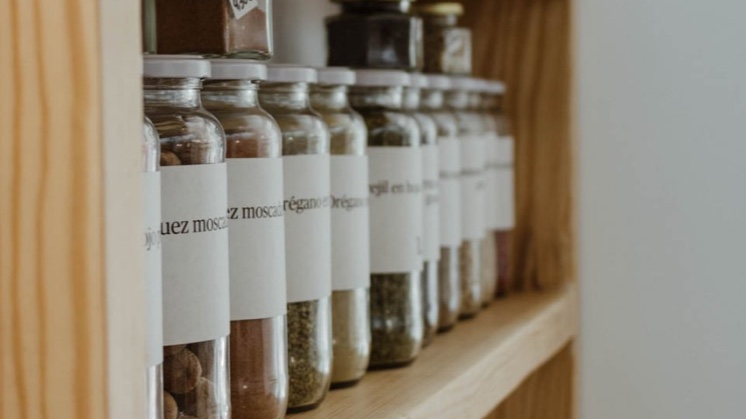
YES FUTURE and unPacked are pioneers, but they are not the only ones. In Madrid, A Salto de Mata in the traditional Lavapiés neighbourhood offers naked, or plastic-free, fresh and seasonal products, as does Granel Madrid on Calle Embajadores. Casa Ruiz has four shops in the capital, and Pepita y Grano has taken its sustainable, plastic-free philosophy to Valencia, San Sebastián and Ponferrada as well as Florence in Italy. Cántaro Blanco, in Madrid's Malasaña neighbourhood, is the only dairy to move away from plastic and to offer milk in glass bottles that customers can either bring from home or buy in the shop and reuse, in addition to yoghurt, bread and jams.
In Barcelona, traditional granerías or groceries have been retrofitted as ecological shops that champion the return to selling goods in bulk, reusing containers and using alternative materials. Grans de la Terra and Casa Perris, founded in 1940, are just two examples. For María Arias, there is also a romantic side to it: "There are those who come in to buy in bulk because it's cute, if you like, and then they discover the advantages for the environment. Changing the mentality of suppliers is more complicated, but the moment they get involved, reusing wine or olive oil bottles, for example, very positive initiatives emerge."
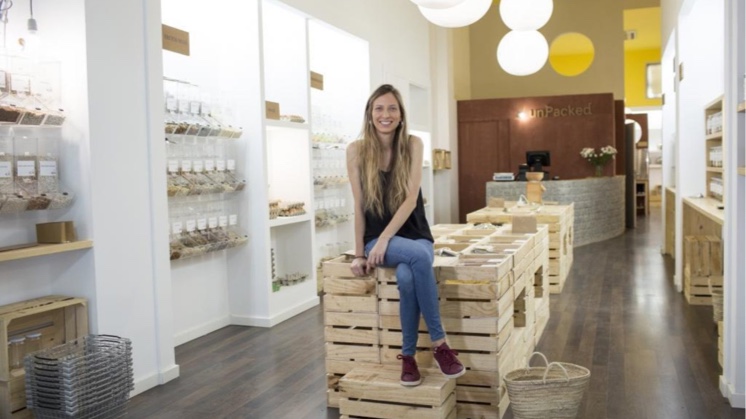
The fight against plastic in the big supermarkets, demanded by society
"Society is growing up and is increasingly aware, definitely," says Olga Rodríguez. "If our customers used to be a little shy about refilling their containers, now initiatives like Zero Waste and Food in the nude are also having an impact on the big supermarket chains, which have to react to the requests of their consumers," she explains.
More than 320,000 people signed a Greenpeace Spain petition for superstores and hypermarkets to cut down on their use of plastic containers. The organisation has also published a Ranking of Supermarkets against Plastic. Although its results make it clear that the fight has only just begun, they do show that the big supermarket chains are increasingly aware of the need to take steps and do their bit in the fight against plastic.
Out of those examined, only Eroski, Aldi and Mercadona passed the test, with measures that may only appear to be sporadic but will lead to a considerable reduction in the use of plastics in the medium and long term. Eroski has undertaken to increase bulk sales by at least 5% at some stores in 2019, and up to 64% of its fruit and vegetables are now sold in bulk. Aldi has already taken action against single-use plastics: no plates, cutlery or drinking straws are sold in its stores. Mercadona is a pioneer in a number of areas. It has eliminated microplastics of all its cosmetic products, and the cleaning products in its ECO section, such as dustpans, are made solely from recycled agricultural plastic.
Circular economy model at the Iberdrola Group
At Iberdrola, we work to be more respectful of nature in our three strategic sustainability areas: climate action, biodiversity protection, and circular economy.
For this reason, our sustainable business model is based on the circular economy model, a system for making the most of resources in which priority is given to reducing the use of new raw materials through efficiency in processes, product life extensions, and a firm commitment to the reuse and recycling of materials.




